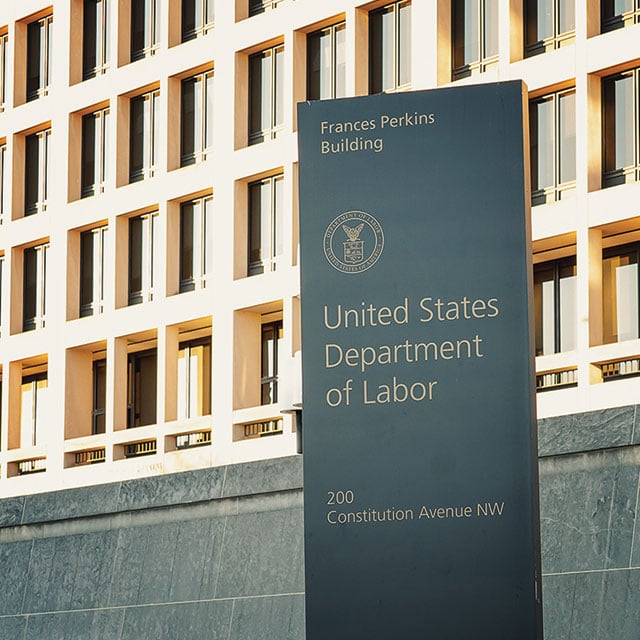Why the DOL Hearings Generated More Heat Than Light

What You Need to Know
The author sees the proposal placing too much trust in institutions.
Institutions can have conflicts, too.
The federal government seems to have a problem with the fees needed to pay for insurance.
Should the U.S. Department of Labor sanction the sale of annuities to retirement investors? Before answering that, we need to specify which definition of “sanction” applies to this question. Does it mean allow or penalize? People who hold similar positions on this issue may give opposite answers because they are assuming different definitions of the term “sanction.”
Likewise, recent hearings on the DOL’s proposed fiduciary rules generated more heat than light because most participants failed to note that the word “fiduciary” means and requires different things in different contexts.
I have been grappling with the DOL’s repeated fiduciary rulemaking efforts over the past 13 years from a variety of professional positions, but speak only for myself today. I believe all stakeholders need better clarity about definitions and practical consequences of the latest proposal before jumping on the Yes or No train.
What does “fiduciary” mean?
Generically, fiduciaries owe duties of care (professional diligence) and loyalty (acting in the client’s best interests, not their own or anyone else’s). In principle, virtually no one objects to applying these standards to financial professionals who recommend products and services to retirement investors, which is why “best interest standards” already have been adopted for securities brokerage and most annuity sales over the past few years.
The Employee Retirement Income Security Act of 1974 (ERISA) has its own definition of “fiduciary,” and attaches duties and restrictions to this label that aren’t found in other contexts. Critically, ERISA-fiduciaries are prohibited from receiving any compensation paid out of retirement plan assets, or any compensation from third parties (e.g. any type of commission) that is connected with a plan transaction.
It would be impossible to obtain services for retirement plans if professionals could never be paid, so ERISA authorizes the DOL to issue prohibited transaction exemptions (PTEs) that are tailored to allow reasonable compensation for necessary products and services.
In other contexts, fiduciaries can get paid reasonable compensation if the principal (e.g. the person creating a trust) agrees to it. But in the ERISA context, an employer is usually the principal. An employer does not have a relationship of “trust and confidence” to act in the best interests of its employees, but ERISA imposes fiduciary duties on the employer acting as plan sponsor as a condition of enjoying its tax benefits. The employer is not entitled to compensation for the work of administering the plan, but when it delegates some of this work, PTEs provide guardrails to ensure expenses support the plan beneficiaries rather than lining the pockets of the employer’s affiliates and cronies.
Pitting self-directed accounts against fiduciary-directed accounts is not helpful.
Having to get permission for compensation from the DOL instead of the principal makes no sense for individual retirement accounts (IRAs) where the principal and beneficiary are the same person. IRAs are held in trust accounts to ensure the conditions of their tax-advantaged status are observed, not because IRA beneficiaries are incapable of making decisions for themselves. Indeed, IRA beneficiaries generally have the right to change their trustees and investments at any time and for any reason.
The DOL and supporters of its rulemaking efforts have pointed to statistics and anecdotes indicating that many retirement savers lack the financial education and savvy to make well-informed decisions in exercising their choice of products and service providers. This is indeed concerning and the DOL should consider how to help consumers make better decisions for themselves.
But changing the definition of ERISA-fiduciary to encompass virtually anyone who makes a recommendation about retirement savings is not an effective way to help consumers. It would actually water down the meaning of “fiduciary” by forcing its application to salespeople who are not fiduciaries in other contexts.
Trust in individuals or institutions?
Worse, the DOL is proposing to amend a handful of PTEs to place more trust in the hands of financial institutions, instead of focusing accountability on the individual advisors. The conditions in the proposed PTEs focus on financial institutions setting policies and procedures designed to mitigate conflicts of interest, and annual self-reporting on the effectiveness of these policies and whether any of the supervised individuals failed to provide the required disclosures.
It’s hard to conceive of why the DOL thinks that financial institutions are less conflicted or more trustworthy than the individual financial professionals that they supervise. Individual advisors often have long-standing and personal relationships with their clients, as well as heavy reliance on reputation and referrals to maintain and grow their client base, which regularly outweighs the lure of a few extra basis points when recommending one investment or another.






